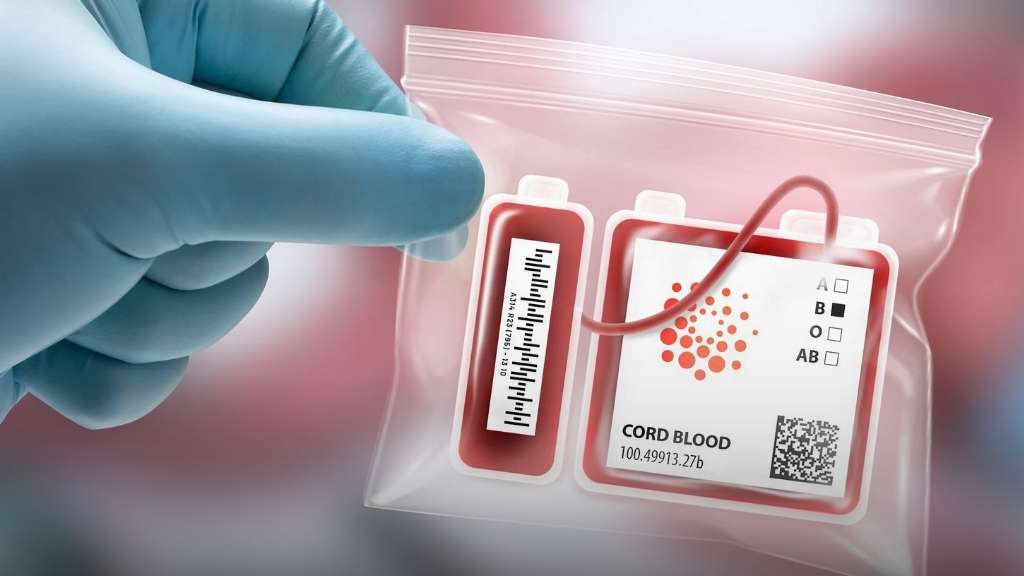
Table of Contents
If you’re in the midst of pregnancy or contemplating starting a family, you’ve likely come across the concept of cord blood banking. During pregnancy, the umbilical cord plays a crucial role as the lifeline connecting the baby to the placenta, a source of vital oxygen, antibodies, and nourishment. In the past, this valuable tissue was often discarded after childbirth, but times are changing. Nowadays, more and more parents are choosing to store – or “bank” – their baby’s cord blood for potential future use. Notably, donating umbilical cord blood holds the power to save lives.
Cord blood has the potential to treat a range of conditions, including leukemia, immunodeficiencies, certain cancers, sickle-cell anemia, and various metabolic disorders. Moreover, ongoing advancements in medical science are uncovering new therapies that harness the potential of stem cells. Given the relatively recent emergence of cord blood banking, it’s natural to have queries about the process.
So, in this guide, we will explore what cord blood is and the cord blood banking pros and cons, empowering you to make informed decisions.
What is the Use of Cord Blood?
Primarily, stem cells extracted from genetically compatible donors’ cord blood have the remarkable ability to “rejuvenate” the blood and immune systems of individuals facing illnesses. “Cord blood holds immense potential for treatment and even cures for a range of conditions,” highlights Dr. Nancy Green, a pediatric hematologist and former medical director of the March of Dimes.
Dr. Green emphasizes that cord blood transplants are not experimental; they have been employed for years and are established as treatments for childhood leukemia and various other disorders. Furthermore, ongoing research is uncovering possibilities to harness cord blood for additional ailments. These may include heart disease, stroke, diabetes, spinal cord injuries, and more. The horizon of cord blood’s medical applications is continually expanding.
Now that we have the use of cord blood out of the way, let’s talk about cord blood banking’s pros and cons.
Pros of Cord Blood Banking
There are several benefits of cord blood banking. Here are a few:
- Wider Availability: Cord blood can be used by more recipients compared to bone marrow. Close matching isn’t as crucial as with bone marrow transplants.
- Reduced Rejection Risk: Cord blood stem cells have a lower likelihood of being rejected by the recipient’s body compared to bone marrow.
- Immune System Support: Cord blood stem cells could aid the immune system at the time of cancer treatments way better than bone marrow stem cells.
- Simplicity and Safety: Collecting cord blood is simpler, less painful, and less risky for donors than obtaining bone marrow.
- Safe Collection: Collecting cord blood poses no risks to newborns or birthing individuals.
- Readiness for Use: Cord blood banks store and freeze cord blood, ensuring its availability when needed.
- Public Donation: Donating to public cord blood banks is cost-free and has the potential to save lives.
These were the benefits of cord blood banking. Now, let’s look at the cons.
Cons of Cord Blood Banking
These are some drawbacks to cord blood banking:
- Limited Stem Cells: Cord blood contains fewer stem cells, necessitating multiple donors for adult transplants.
- Private Bank Costs: Storing cord blood privately can be expensive, costing between $1,500 to $2,500, with additional annual fees of around $125.
- 3. Possible Collection Fees: Some hospitals might charge a nominal fee for public collections.
- Advanced Planning: Cord blood donation requires preplanning and consent before labor begins.
- Comparable Effectiveness: Private banking might not be more effective than using stem cells from an unrelated donor.
- Limited Hospital Participation: Not all hospitals collect cord blood for public storage.
- Eligibility Criteria: Everyone cannot donate cord blood.
After looking at cord blood banking pros and cons, let’s dive into the cost of cord blood banking.
Costs
The cost implications of cord blood banking include:
– Public Donation: Donating to a public bank is free, although certain hospitals might charge a collection fee.
– Private Storage: Storing cord blood privately can range from $1,500 to $2,500, with additional annual fees of about $125.
– Initial Kit and Services: Additional expenses might include initial collection kit costs, processing, and courier services, totaling several hundred dollars.
Concluding Thoughts on Cord Blood Banking Pros And Cons
In the ever-evolving landscape of healthcare, cord blood banking stands as a beacon of hope and possibility. The decision to bank cord blood is not just about investing in potential treatments but also about securing a future that’s equipped to combat a wide range of ailments. While there are advantages and drawbacks to consider, the fact remains that cord blood holds the power to transform lives.
Whether through public donation or private storage, the choice to embrace this technology is a testament to our commitment to the well-being of our families and the advancement of medical science. As we navigate the realm of parenthood and health, cord blood banking emerges as a profound opportunity to contribute to a healthier world—one stem cell at a time.






